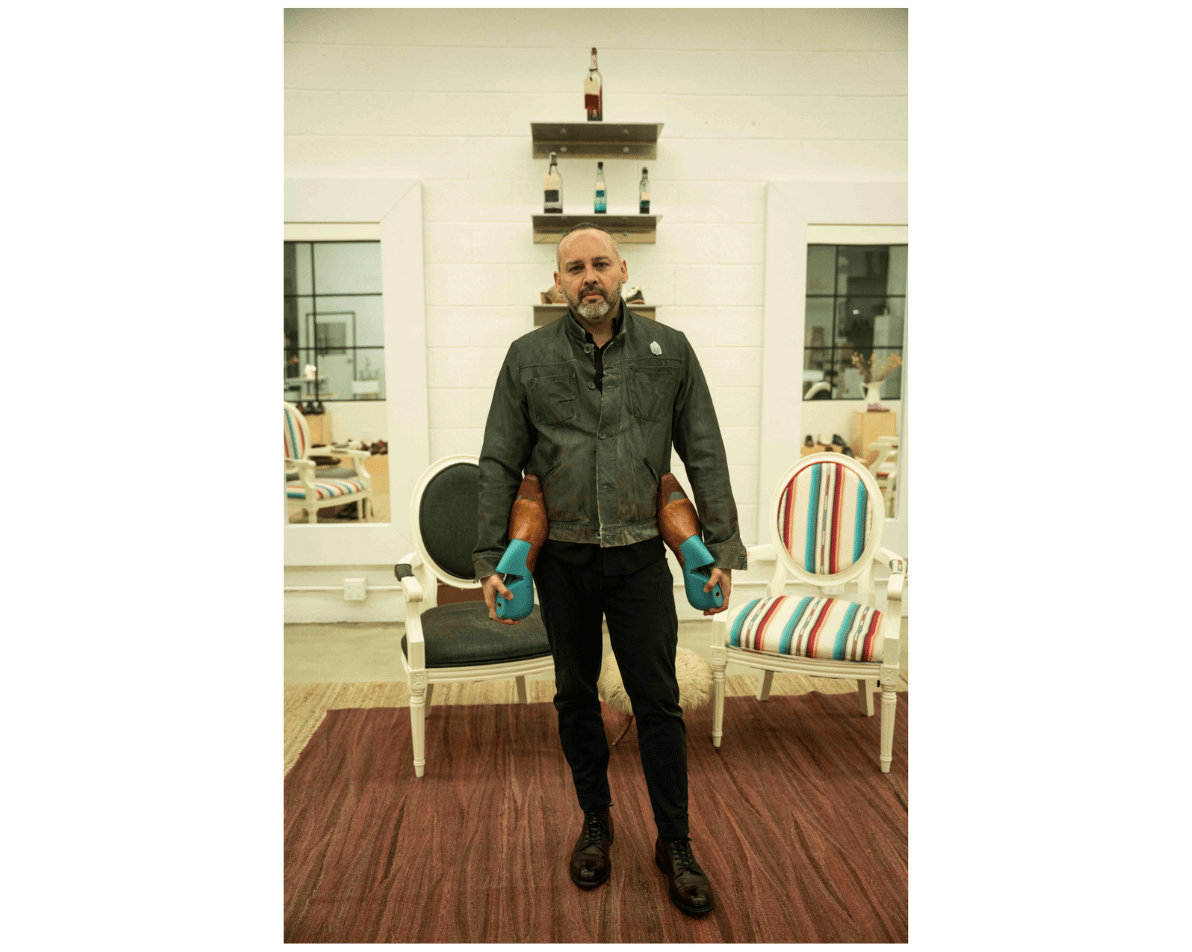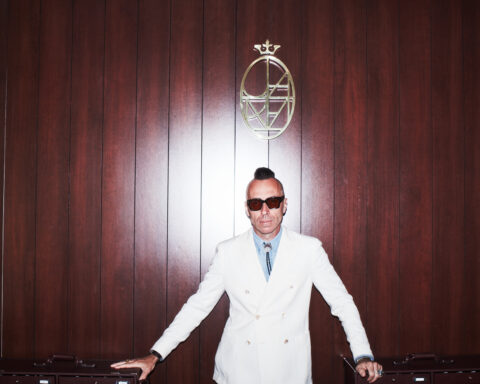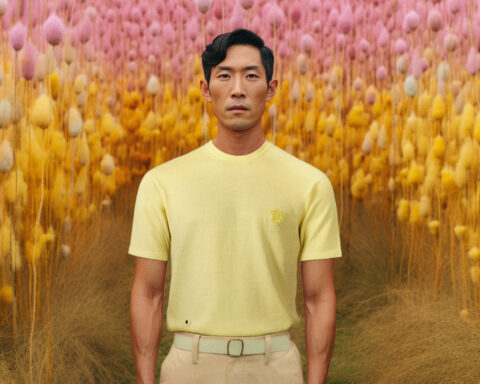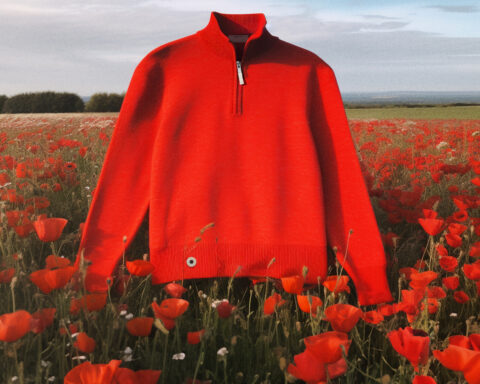Since Mr Feelgood’s inception, George Esquivel has been an integral member of our community. He is owner and CEO of Esquivel Shoes, in downtown Los Angeles, where his footwear and accessories are expertly handmade by artisans, talking great pride in what they create. No element of the process is mechanical, thus delivering to the client a unique and personal product — made to last and rich in sole.
We interviewed George when we first launched our site, and learned of his exceptional story, his personal journey from the streets to fulfill his dream. He made it happen through skill, will, unfaltering determination, and natural talent. He is one of the good guys, a devoted family man who marries exceptional high standards with a keen and ever-present responsibility to do the right thing, to treat both his customers and employees with the trust and respect that is earned, supported, and valued.
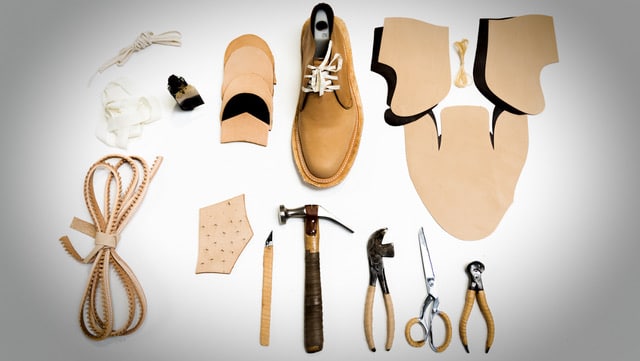
To expand on his business, and as a way to maintain and to deepen his commitment to his customers, George has recently added a new program to his work, launching a made-to-order service that can be accessed online. So we were intrigued to speak to George about his move into the direct-to-consumer space; what inspired the idea, and what he feels will be the benefits of introducing this new service.
He explains, “When we first opened our space, like so many other brands, we had a lot of inventory — but we found nobody wanted that. Everybody wanted made-to-order. My top customers do not want to buy what we have in stock. They want something a little different, unique, special. So it’s actually become our best-selling category. We can offer a similar shoe, at 30% less cost, from stock, but they don’t want it. They want it their own way. So since the pandemic, we decided to relaunch the website and really focus on direct-to-consumer.
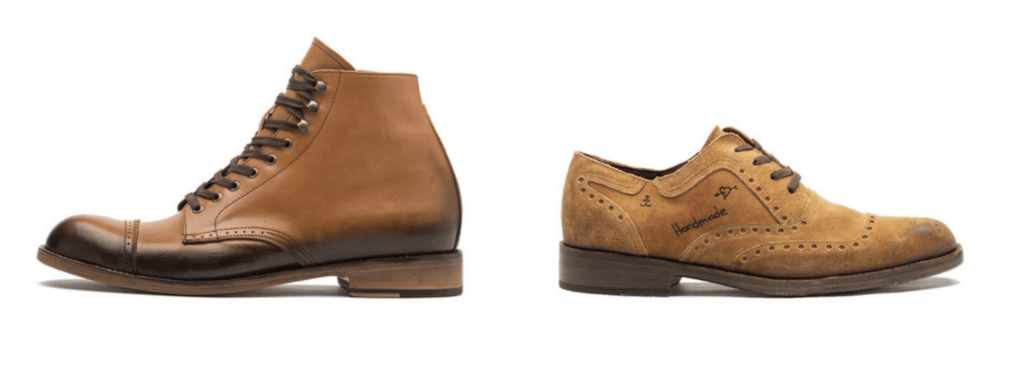
“We chose the best men’s styles that we’ve been selling. So you can purchase as pictured, or design your own. But it doesn’t stop there. Nike ID, for example, once you click, that’s it. They’ll tell you when your shoe’s coming. Instead, we are going to ask ‘What size do you wear, in both sneakers and shoes?’ And I would send you size 11.5 and 12 samples for you to try. Or you might even say, ‘You know what, George? The right is a 12, the left is 11.5.’ Many people don’t even know what correct size they wear. We would then begin to make your pair. We would send swatches based on what you like. We want it to be an entire, enjoyable experience. That’s really why we’re doing it.”

As ever, all shoes will be made at Esquivel House, by skilled artisans using time-honored traditions paying tribute to the art of handcrafting.
“We have less than a 1.5% return rate on made to order shoes,” says George. “We ship fit samples all over the country, all over the world actually. I would rather invest in the upfront of shipping you fit samples, making sure you understand. My business is too small to take anything back and these are sometimes selling to people that we’ve never met in person. We’re going to add other items like watch straps and duffle bags. We want our entire site to be made-to-order. Once in a while, if it’s super difficult, I’ll say, ‘When you come to LA, we’ll fit you.’ We’ll still service somebody who’s got foot issues, but that has to be done in person.

“The bigger brands lose money when they do special made-to-order, and it’s more of a headache. They take up to nine months to deliver a made-to-order shoe, I have heard. We deliver in about eight to 10 weeks. And it’s a headache for those big labels because their goal is volume. At the end of the day, we’re seeing brands go back to the way things were. But we have always been this way. We’ve always been small and always been about the customer experience. We’re trying to build our clientele and we want people to come back over and over. So that their kids will come to us, and then their kids come to us. That’s the goal, whereas other people are just about selling, in my opinion, selling a label quick. I will say, there are some large labels that make very beautiful products. But there’s some products that are just a label. We don’t even put a label on our shoes. I want to show that slow-fashion can be chic and elevated.”

There’s much to be said of the business model George has adopted. It’s about taste, not waste. It’s about servicing the client with genuine attention to detail, involving the client in every aspect of the creation, thus building solid lifelong relationships and delivering a product that has the clients time and personal talents invested in — and it’s fun! Fast fashion is seeing an inevitable decline as it affects the climate and as people move towards understanding the benefits of circular fashion. What is interesting is that, in order to move forward, we are looking backwards, to the way things used to be.


